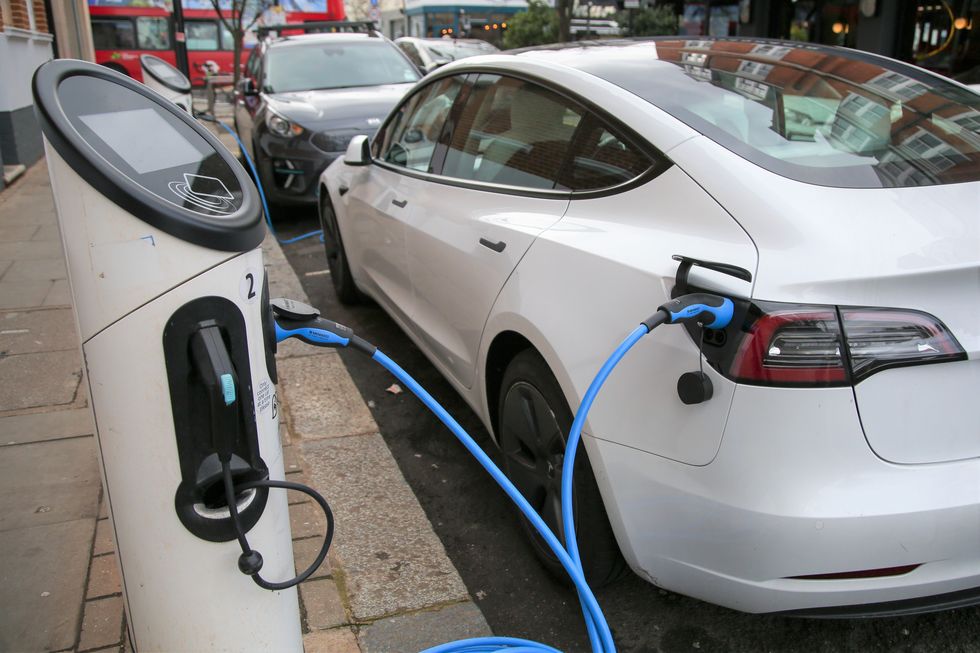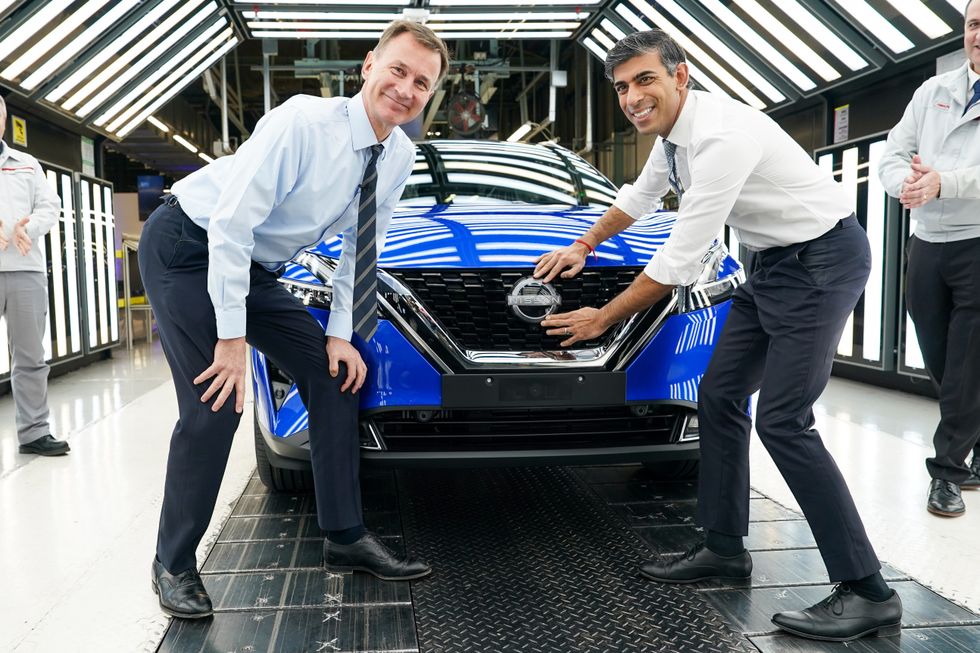The UK needs to accelerate the development of the electric vehicle charging infrastructure, according to the Energy Secretary, amid concerns the EV switch is not happening quickly enough.
Ed Miliband, Secretary of State for Energy Security and Net Zero, spoke about the UK’s progress towards electric vehicles and whether the UK’s charging infrastructure is suitable.
According to the latest data from Zapmap, there are more than 70,000 public charging devices around the UK, with over 2,100 being added in September alone.
It is hoped that the UK will see 300,000 public chargers installed across the country before the end of the decade to help motorists have the confidence to switch to electric vehicles, especially if they can’t charge at home.
Do you have a story you’d like to share? Get in touch by emailing[email protected]

There are more than 70,000 public chargers around the UK
GETTY
Speaking earlier today on BBC Radio 4’s Today programme, he said more needed to be done to help individual motorists switch to electric vehicles.
He added: “There’s two particular problems that I would identify. The first problem is that the last Government pushed the date back to 2035 and that was part of what has spooked the market a bit.
“That’s why we’re clear about the 2030 phase-out date for new petrol and diesel vehicles.
“The second thing that’s got to be done, and I actually think this is the biggest thing, is to get the charging infrastructure right.”
He noted how people are consistently worried whether the charging infrastructure would be capable of handling demand, as well as whether drivers will be ripped off.
The 54-year-old added that he was working with Transport Secretary Louise Haigh and Business Secretary Jonathan Reynolds to make sure charging infrastructure is rolled out properly.
He even suggested that the Government could look into setting up new targets, noting that a plan is being developed to “make sure that we have the charging infrastructure in place”.
The MP for Doncaster North said: “The current’s only going in one direction, which is towards EVs. It can either go slowly, lose out competitively and not meet our climate targets. Or we can do the right thing and drive forward with this.
“But I completely accept this point which is that the country and the Government has got to do a much better job of giving people the reassurance that the infrastructure is in place for reliability when it comes to EVs and we’re determined we’ll do that.”
Miliband added that Chancellor Rachel Reeves understood that investing in the future through carbon capture or electric vehicles is “absolutely crucial”.
It comes as the Government pledges almost £22billion over the next 25 years for carbon capture projects, with clusters being developed on Merseyside and Teesside to help meet climate goals.
Labour’s election manifesto vowed to support the transition to electric vehicles by accelerate the roll out of EV chargepoints around the UK.
LATEST DEVELOPMENTS:
- Vauxhall to give drivers a free home charger and 50,000 Clubcard points to switch to an electric car
- Diesel demand soars as drivers move away from EVs forcing major brands to spend £2bn on discounts
- M4 closed: Major incident declared after ‘serious collision’ and ‘fuel spillage’ as drivers face long delays

Rishi Sunak delayed the ban on petrol and diesel car sales from 2030 to 2035
PA
Keir Starmer’s party also vowed to give certainty to manufacturers by restoring the phase-out date of 2030 for new cars with internal combustion engines.
The final point of the Labour manifesto for motorists was to support buyers of second-hand electric vehicles by standardising the information supplied on the condition of batteries.
Commenting on Miliband’s pledges earlier today, Asif Ghafoor, CEO of national EV charging network Be.EV, said: “Ed Miliband is quite right to say that more needs to be done to increase confidence in the public EV charging infrastructure.
“Fortunately for him, this will not require many changes – the last thing the country needs is any more significant rules or changes, as this is a headache for everyone. What we really need is more continuity and certainty.”